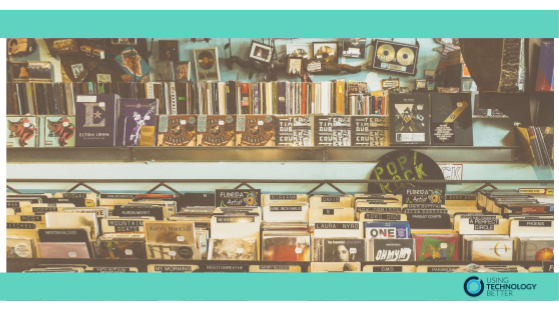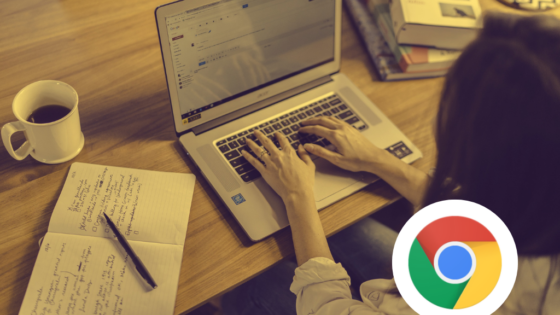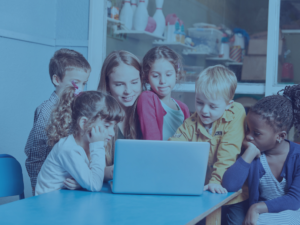One of my favourite questions that I ask during training with teachers is, ‘How did you listen to recorded music when you were 15?’ This question always generates smiles and lots of discussion. Most people feel a real emotional connection to memories of listening to music when they were 15 and it’s always super fun when you’ve got people who answer with gramophones or record players and people who were using an iPod (the first iPod was released in 2001 – that’s 18 years ago – feel old now?!?!?! 🙊).
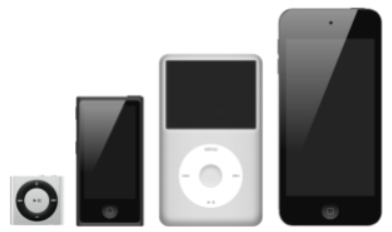
CAPTION: The iPad is 18 years old!!!!!!
[bctt tweet=”How did you listen to music when you were 15? Check out this blog post to see why this is an important question! #utbPD” username=”lara_kirk”]
My next question is, ‘How do 15 year olds today listen to music?’ We then discuss the impact of this. People are very quick to jump to the negative repercussions of this change in technology but I find the positive consequences of this far outweigh the negative. These are all worth discussion but I want to focus on one in this post.
For a moment consider your ‘musical footprint’. I’m talking about all the records, cassettes, CDs and so on that you have purchased in your lifetime. I was faced with this recently when I was confronted with one box of my old CD’s, I’d said goodbye to my cassettes a few years earlier.
[bctt tweet=”What’s your ‘musical footprint’? Imagine all the LPs, cassettes and CDs you have owned – how big is the pile of waste from these? Check out this blog to see how exploring these questions can engage students in your classroom. #utbPD” username=”lara_kirk”]
What to do? I couldn’t just throw them out, could I? I loved my CD’s, I treasured them, they were loaned out to people rarely and under the threat of severe punishment if they were returned scratched. I still remember the first CD I bought (Ben Harper, Fight for your Mind), I remember saving the $30, walking down to my local music store and finally being able to buy it instead of listening to it in the shop.
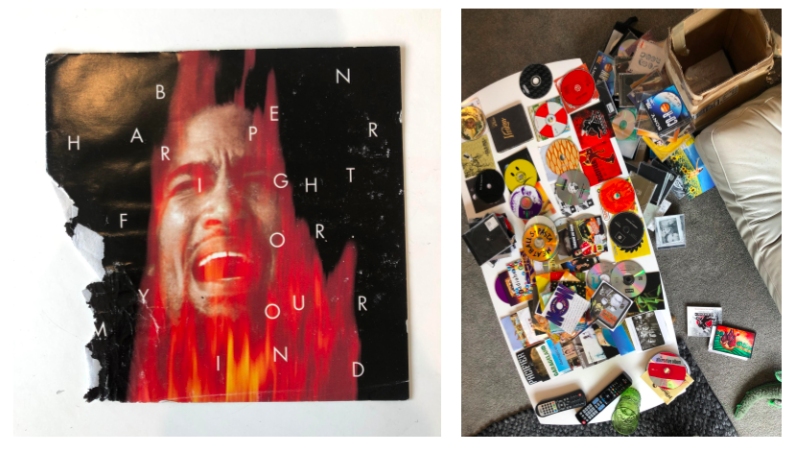
After much deliberation I decided to keep the CD’s and the cover inserts of the ones I really loved and put them in cases to (more than likely) never be looked at again, but at least I know I have them. The rest were sorted and as much material as I could I sent to the recycling center, sadly it wasn’t much.
15 year olds today won’t have this ‘musical footprint’. They probably won’t have too many torches, calendars, printed photos, albums and so on either. My pile of plastic from CD cases wasn’t small – I hate to think what that pile would have looked like from all the students in my year at school.
What’s the point of my story?
The Climate Crisis is the biggest news around the globe at the moment. With #FridaysForFuture climate strikes happening all over the world it is clearly an issue that is at the forefront of many people’s minds and something that would be valuable to be exploring in school. I think that if I was a classroom teacher today I would be trying to make sure that on a Friday (at least) our learning would be focussed around the environment, sustainability and how we can make positive change.
[bctt tweet=”Make #FridaysForFuture the context for your learning on a Friday. Here’s a blog post to give you some ideas to start generating discussion with your students. #utbPD” username=”lara_kirk”]
How could you use conversations like these to generate discussions in your own classroom? In what ways has (or is) technology making positive impacts on the environment? In what ways has (or is) technology having negative impacts on the environment? Could your students use some of these ideas as prompts to ideate and explore what tech might look like ten, twenty, fifty years from now if the biggest consideration from the developers is around sustainability?
Many of these questions seem to have obvious answers to us. We have lived the change. For many of our students they have been born into a world of highly sophisticated tech from day one. Their understanding of the impact this has is vastly different to ours and worth highlighting and exploring with them.
[bctt tweet=”Students today were born into a world of highly sophisticated tech. It’s worth highlighting and exploring this with them as the impact that tech has had on our world is not as obvious to them as it is to us. #utbPD#utbPD” username=”lara_kirk”]
Some topics to get you started:
- Transport
- Food – reducing waste
- Food – production
- Money
- Entertainment
- Building and construction – here’s a great podcast from Stuff You Should Know about sand – details how it is being used at a phenomenal rate, particularly in construction.
- Clothing
- Animals – wildlife, endangered species etc.
- Appliances – many seem to be made NOT to last very long
- Books
- Recycling – how tech can support with this
You never know, one of your students may just come up with an idea that could have a true, long lasting positive effect on our Earth. It seems our young people are the ones who are already leading us and working towards ensuring our planet is a safe place for humans to live. It would be such a wasted opportunity not to bring this into our classrooms.
Share your ideas with us on Twitter or Instagram with #utbSHARE to be in to win a free online course.



